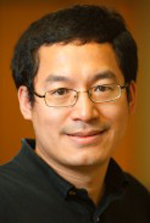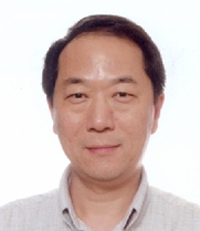By Meaghan Thurston
The Alberta-based Climate Change and Emissions Management Corporation (CCEMC) announced on April 15, that two McGill researchers are among the 24 winners of $500,000 grants to transform carbon dioxide into useful products. Zetian Mi, Associate Professor, Department of Electrical and Computer Engineering and Yixin Shao, Associate Professor and Associate Chair, Department of Civil Engineering received the grants as part of the CCEMC Grand Challenges program. In addition to the funding, they will receive access to a support team who will help them to develop their idea.
Finalists of the Grand Challenges program were selected from 344 submissions from 37 countries on six continents.

Mi’s project will advance the development of a carbon dioxide (CO2) transformation system, which will include reaction chambers where carbon dioxide and water (H2O) are transformed into commercially-valuable chemical products. Powered by solar energy, the chambers will be designed to allow for on-site installation in proximity to the CO2 source. The products will have wide marketability and can significantly reduce, or even offset the cost associated with CO2 capture.

Shao’s project will explore new ways to use CO2 in the production of concrete blocks. As one of the most widely used man-made products on the planet, concrete emits a lion’s share of CO2. Dr. Shao is investigating how carbon dioxide can be converted into a solid, value-added material with enhanced physical properties, thereby improving the standard concrete block and reducing the harmful environmental impact of CO2 emissions from its production and use.
“While efforts to mitigate greenhouse gas emissions around the world are making progress, we still need to pursue other strategies that can reduce emissions as global demand for fossil fuels grows,” said CCEMC Chair Eric Newell. “We applaud the leaders behind these projects who are taking action through developing new carbon utilization technologies.”
CCEMC was established in 2009 to contribute to Alberta’s climate change strategy and lead initiatives aimed at establishing a diverse lower-carbon economy.
The Honourable Robin Campbell, Alberta’s Minister of Environment and Sustainable Resource Development, closed the media conference in Edmonton with the declaration that “Climate change is everyone’s issue, and I am proud to stand here with you as part of the solution.”
The announcement of the first round finalists of the CCEMC Grand Challenge: Innovative Carbon Uses, kicks-off Zero 2014, a conference hosted in partnership by the CCEMC and the City of Edmonton. Zero 2014 will bring together leaders from science, policy, clean technology, industry and government to discuss lowering carbon impact and promoting greater awareness of emissions reduction initiatives.
The full listing of finalists can be found here.
Go to the Zero 2014 Conference website for more information.

So science is 100% certain the planet is not flat and but have 32 years of 95% certainty that CO2 could flatten it?